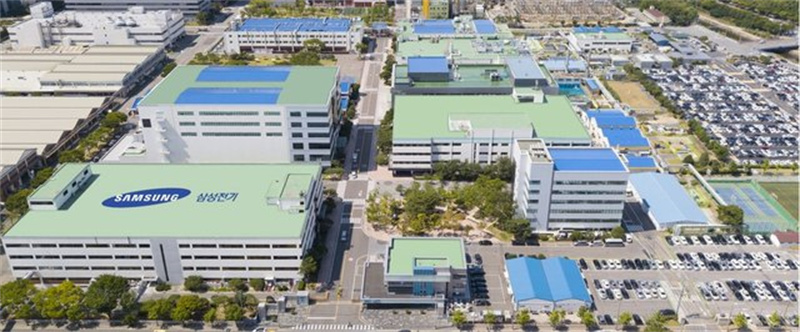Samsung Electro-Mechanics (SEMCO) has begun supplying glass substrate samples to U.S. semiconductor company Broadcom for use in AI-focused application-specific integrated circuits (ASICs), according to Korean media reports on November 3. Broadcom designs custom AI server chips for major tech firms such as Google, Meta, OpenAI and Apple, suggesting the potential for SEMCO’s glass substrates to enter global supply chains for leading AI companies.
Glass Substrate Evaluation Underway
SEMCO initiated formal discussions with Broadcom in the second half of 2023 and is currently delivering multiple glass core substrate samples for evaluation. These samples replace the FC-BGA (flip-chip ball grid array) core layer with glass rather than substituting the silicon interposer in 2.5D packaging.
Broadcom is testing several models, but only the most optimized design—validated with real ASIC packaging—will be selected for mass production. One industry expert said the companies aim to begin volume production around late 2027, depending on sample qualification.
Broadcom does not produce its own branded semiconductors. Instead, it designs chips for clients such as Google, Meta, OpenAI and Apple, then outsources manufacturing to foundries while managing the process through to delivery. Broadcom holds roughly 60% of the overall ASIC market and more than 70% of the AI ASIC segment.

Given this position, SEMCO’s glass substrates are expected to become part of Broadcom’s platform offerings to multiple end customers, rather than being tied to a single client. As AI chipmakers increasingly consider transitioning to glass substrates, Broadcom could offer this technology as a premium option.
SEMCO Plans Aggressive Capacity Expansion
SEMCO is also finalizing its investment roadmap for glass substrate mass production. The company is considering installing production capacity of up to 20,000 glass substrate panels per month, contingent on securing volume supply contracts with customers such as Broadcom.
Each production line typically manufactures around 4,000 panels per month (based on 515 mm × 510 mm substrate input). A 20,000-panel capacity would require five lines, including one already planned at SEMCO’s Busan facility.
If each panel is cut into 100 mm × 100 mm units, a single panel yields 25 finished glass substrates. At full capacity, this equates to approximately 500,000 substrates per month, or 6 million per year. Assuming a 70% yield rate, the effective output would be around 350,000 per month and 4.2 million per year.
For comparison, Google and Amazon are expected to procure around 3.5 million ASIC chips this year. As Meta, OpenAI and Apple increase adoption, the AI ASIC market is projected to grow at an annual rate exceeding 30 percent. While it is difficult to estimate how many AI chips will transition to glass substrates, SEMCO’s planned capacity reflects an aggressive bid to secure at least 30–40 percent market share, according to industry analysts.
+86 191 9627 2716
+86 181 7379 0595
8:30 a.m. to 5:30 p.m., Monday to Friday
